Thunderbolt on Windows Part 2: Intel's DZ77RE-K75 & ASUS' P8Z77-V Premium
by Anand Lal Shimpi on June 3, 2012 2:08 AM EST- Posted in
- Motherboards
- CPUs
- Intel
- Asus
- Thunderbolt
- Ivy Bridge
- Chipsets
Hot Plug & Promise Pegasus, Now Supported Under Windows
For the past year, hot plug of Thunderbolt devices hasn't been supported under Windows—even on a Mac running Boot Camp. Any Thunderbolt device had to be present at POST for it to appear under Windows. In order to have a certified motherboard, BIOS/UEFI workarounds have to be present to allow for Thunderbolt hot plugging under Windows.
With a certified motherboard and a Windows certified Thunderbolt device, hot plug does work as you'd expect it to.
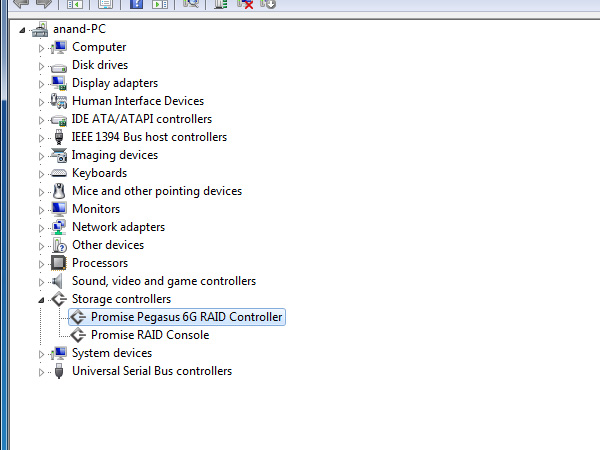
Promise provided us with a beta driver and firmware update that allowed us to use the Pegasus R6 under Windows. Hot plugging worked just fine.
The Promise Pegasus utility under Windows is actually a web based interface, but it provides the same basic functionality as the equivalent OS X application.
What happens if you don't have a certified driver? One of three things can happen. The device will either not work at all, it will compromise stability, or it will work but with some issues. The LaCie Little Big Disk is the perfect example of the last option. I just got a beta certified driver, but prior to receiving it this is what would happen when I plugged it into a running Windows system:
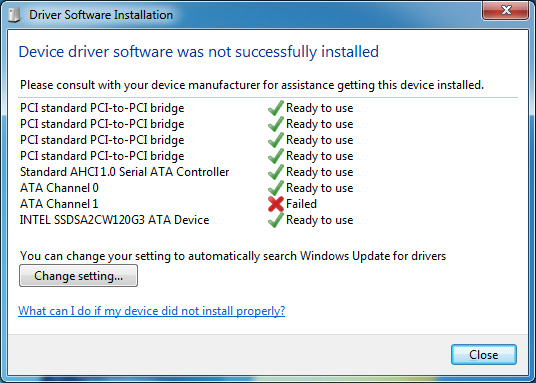
Only one of the two internal SATA channels was detected, meaning only one of the two internal drives was accessible. A reboot fixed this however.
The Elgato Thunderbolt SSD and Seagate's 2.5" GoFlex Thunderbolt adapter both use a different (lower power) SATA controller in order to stay below the 10W limit for a bus powered device (the cable, SATA and pre-Cactus Ridge Thunderbolt controllers combined already eat up around 5W).
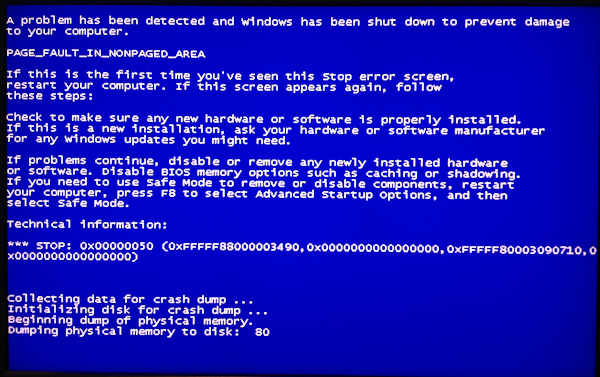
Unfortunately the ASMedia controller in these devices doesn't work well without a certified driver. Simply attaching the Elgato drive to a running Windows PC can cause a BSOD. Neither drive would even show up on either of the motherboards I tested; we'll simply have to wait for a certified driver here.
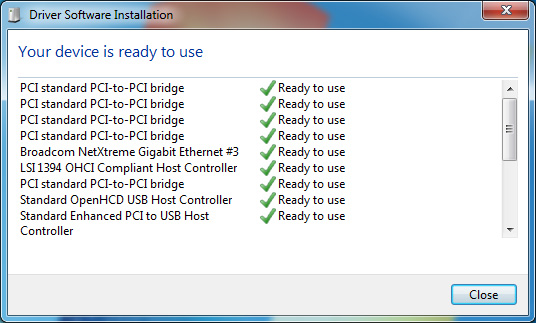
Apple's Thunderbolt Display works but not without a bunch of caveats. First you'll need access to a Mac to extract the drivers for the integrated components in the display (Firewire 800, GigE, etc.). Audio will work but only if you don't have a discrete GPU plugged into the motherboard. Firewire 800 and GigE both work. The integrated USB hub on the other hand basically doesn't work under Windows. Apple doesn't officially support the Thunderbolt Display under Windows and Intel won't certify it without Apple's support so anyone wanting to use a Thunderbolt display will just have to wait for someone else to release a similar product.
Remember the weird audio frame dropping issue I encountered under OS X with the Pegasus and Thunderbolt Display? I also encounter a similar but less severe version of that under Windows. While writing to the Pegasus and playing music through the Thunderbolt Display's speakers I get dropped audio frames, but unlike under OS X the music continues to play and is mostly recognizable—it just sounds like there's a little bit of static in the background. It's interesting that the problem exists under both OSes, but with slightly different behavior.


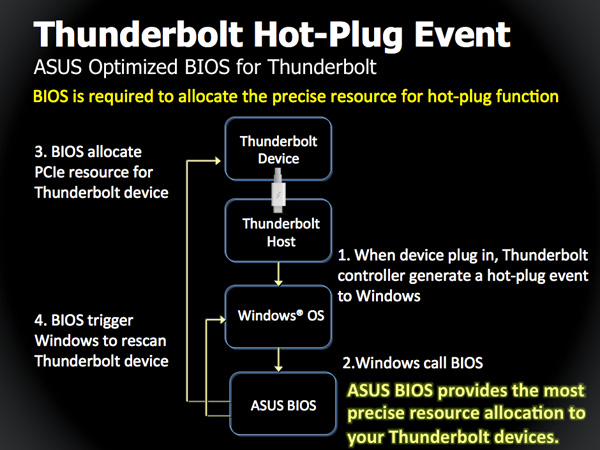
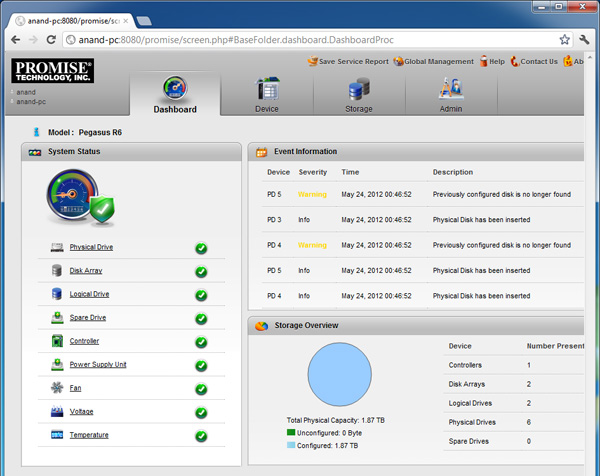














116 Comments
View All Comments
risa2000 - Sunday, June 3, 2012 - link
Can you provide a reference to this statement?Or did you mean security in the sense of "stability"?
coder543 - Sunday, June 3, 2012 - link
I don't have a link, but he's right. They claim it would lead to security issues because it's a PCI interface. You would have hardware level access to virtually anything.derektrotter - Monday, June 4, 2012 - link
These security issues you speak of are solved with an IOMMU.It would be odd for MS to say they won't support an I/O technology. It's just not something they usually do.
Perhaps the poster was referring to MS' crummy license scheme for Office Mac reacting poorly to Thunderbolt and eSATA drives?
http://answers.microsoft.com/en-us/mac/forum/macof...
rahvin - Monday, June 4, 2012 - link
IOMMU doesn't solve the DMA threat the Thunderbird provides. These ports will be epoxied shut on every government computer because of that threat. Because Thunderbird is raw PCIe it has direct memory access (DMA) through the device, that means in theory a portable Thunderbird harddrive could directly read and write to the memory of any computer it's plugged into without regulation by the OS or computer. You could in theory create a device that auto exploits every computer it's plugged into. These and other reasons are why the USB association and others have said TB is a major security risk (USB abstracts access and was designed from the ground up to be be secure, TB took all that security and threw it out the window).repoman27 - Monday, June 4, 2012 - link
In what ways does IOMMU not provide a viable solution to the threat of DMA attacks?Has every "government" computer had its available PCIe slots, ExpressCard slots and 1394 ports filled with glue?
It's a good thing USB is so secure that thumb drives have never been used to propagate malware or ever exploited as a threat vector. Oh, wait... That's actually quite common.
A Thunderbolt hardware based attack will never be as cheap and easy to build as those based on other technologies. Besides, unless your hardware device can pass Windows certification, it'll probably just cause a BSOD instead of compromising the target system. :P
Can anyone provide a reference to any statement by Microsoft or the USB-IF regarding security issues with Thunderbolt, other than perhaps mentioning that they are the same as other I/O solutions that allow DMA? The USB-IF was founded by Intel and is also responsible for the stewardship of ExpressCard, so it would seem dubious that they were casting any stones.
ka_ - Tuesday, June 12, 2012 - link
IOMMU does indeed look to resolve my initial reservation against Thunderbolt! However, it is only resolved in machines coming with Intel VT-d or AMD HyperTransport, and if the function is activated in BIOS.Activating IOMMU does however degrade DMA performance and use more physical memory for the added I/O page translation tables.
Anand:
What is the performance of Thunderbolt with VT-d / HyperTransport enabled compared with when IOMMU is disabled?
kevith - Sunday, June 3, 2012 - link
I have asked this question so many times, and the silence has been ROARING.But, I'l try once more:
WHY do You keep on setting up RAID 0 in different reviews, this one as well, when every single article YOU WROTE YOURSELF points to the - very clear - conclusion, that RAID 0 HAS NO BENEFITS AT ALL IN REAL LIFE?
Maybe I'l get an explanation this time.
Have a nice sunday.
Tormeh - Sunday, June 3, 2012 - link
RAID0 does have performance benefits, which you have to weigh against stability penalties. In any case, it's good for I/O-testing.As I've understood it, SSD RAID0 has no performance benefits over a similar size single SSD. That is, two 128GB SSDs in RAID0 has similar performance to a single 256GB SSD. In SSDs a big volume (256GB) is faster than a smaller volume (128GB) regardless of how that volume is achieved, given that controller and NAND quality is the same. Not true for HDDs though. Maybe that's where your confusion comes from.
JarredWalton - Sunday, June 3, 2012 - link
RAID0 is for getting maximum sustained throughput, at the cost of reliability (e.g. if one drive fails, you lose the RAID0 set). Since there are no SSDs capable of pushing anywhere near the theoretical throughput of ThunderBolt, it's important to set up something that can potentially saturate the interface.You'll notice that the article never advocates using RAID0; instead Anand states, "In our earlier look at Thunderbolt under Windows I didn't have a working Pegasus driver to really push the limits of the interface's bandwidth. With that now changed, I went to work. I started by pulling out all of the hard drives from the Pegasus R6 and installed four SSDs." I'd think that is all the explanation you need.
3930K - Sunday, June 3, 2012 - link
Anand, I'm sure a few of us would be grateful if you could pull the Mac TB display drivers and put them in a zip for us Windows users.